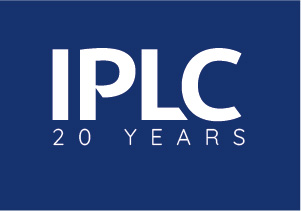By Koen de Jong and Paul Stainton
Gone are the days when the cheapest price will win a tender for Private Label business.
The most successful players in the European Private Label industry are capable of creating added value on top of the physical product. Although this is difficult to measure, it can be of significant importance in the consideration by a retailer to award a contract to a new supplier or to remain with the existing one. It boils down to the skill to compete on elements other than price alone.
Those manufacturers capable of building and maintaining successful partnerships with the retail trade achieve an invaluable competitive advantage. In some cases, they succeed in adding so much extra value to the product that the retailer is prepared to pay a small premium for this, or will decide not to switch suppliers. Strong account management skills, a proactive attitude in solving problems for the retailer before they can arise, and a good performance in the field of collaborative replenishment and stock control are the most highly valued.
Private label suppliers should be more than manufacturers, they should also be able to provide value as analysts, designers, business consultants and innovators. It is about achieving operational excellence and building sustainable partnerships.
Here are just two examples of how value can be added to the physical product – there are many more.
Sense of urgency
Retailers are faced with the challenge of keeping shelves stocked with a wide range of items every day. A large part of this is fresh or chilled convenience. Supply chain management, in order to guarantee a complete assortment on the shelves with no out-of-stocks, is an immense operation.
Therefore, it makes sense that retailers are demanding and not interested in problems and complexity from the side of the manufacturer. The last thing they need are suppliers that are difficult to contact or with communication that is slow and inefficient. The extent to which a company is proactive and capable of preventing problems of any nature for the retailer is of major importance. This and how they manage to overcome difficulties promptly and effectively, determines the trust the retailer has in the supplier. A relationship with few issues and high supply and service levels will lead to a satisfactory, and hopefully long-term, working relationship.
The speed at which a manufacturer can communicate externally with their counterparts at the retail-end strongly depends upon the degree of internal communication within their own organisation. That is why all departments within the organisation of a Private Label manufacturer must have a highly developed sense of urgency. This also has major consequences for the organisation structure of a Private Label manufacturer which tends to be flat with short communication lines.
Market knowledge
It is commonly known that buyers and category managers have too little time to even visit their own stores, let alone competing stores. For this reason, it is important that account managers of dedicated Private Label manufacturers pay frequent visits to stores. This will allow them to quickly detect new developments within the category. The careful monitoring of changes such as retail price movement of branded and Private Label products, product introductions and delistings, packaging changes, features and sizes, form part of the basic duties of the account manager.
Furthermore, small-scale consumer research and data analysis can support the gained insights. Current and sound market knowledge, but above all the willingness to share unique information based upon own research and insight, is highly appreciated by the category manager.
Consequently, the account manager becomes a ‘category consultant’, making it easier for them to arrange a meeting with the retailer. After all, the retailer knows they will be much the wiser discussing issues with an account manager who can be relied on to provide great up-to-date category insight, likely resulting in the retailer sharing more from their side. In this way, the account manager can pick up crucial information that can be translated into business opportunities or threats. Based on these insights, new product development and adequate commercial action can be initiated.
If you need support to improve your organisation’s skills ‘to compete on other elements than price alone’, contact us to find more about our dedicated Private Label approach at info@iplc-europe.com
This is 5th newsletter in a series of 12 that we will publish in the coming months. In the next newsletter we will send out in March we will discuss ‘The ultimate preparation for your customer meetings’
The topics of the previous newsletters were:
- How to become a Private label supplier of choice
- Being the best Private Label Operator
- The Art of Negotiation for Private Label Contracts
- Supercharge your business for your next trade show
All newsletters can be found on the IPLC website To read more

